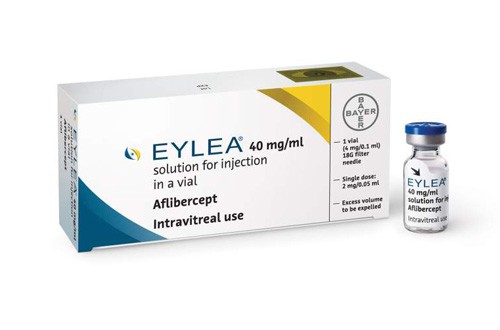
Bayer’s Eylea and Allergan’s Ozurdex have been recommended for use on the NHS in England to treat diabetic macular oedema (DMO).
The eye condition affects around 189,000 people with diabetes in the UK and is a thickening of the central part of the retina that can lead to irreversible vision loss.
Eylea (afibercept) was backed as a treatment option in patients whose eye has a central retinal thickness of 400 micrometres or more at the start of treatment, but only if it is provided at the discount Bayer offered under a patient access scheme.
The guidance will give Eylea a boost at a time when Bayer is looking to close the gap between its drug and Lucentis – and will give it a fillip after Germany’s IQWiG concluded last year that it provided ‘no additional benefit’ over Novartis’ drug. It also represents Eylea’s third NICE recommendation, following positive guidance for wet age-related macular degeneration and visual impairment due to macular oedema secondary to central retinal vein occlusion.
For DMO Eylea is given as a 2mg intravitreal injection every month for five months, followed by one injection every two months at a cost of £816 per dose. Details of the patient access scheme, which will see Bayer provide a simple discount to Eylea’s list price, remain ‘commercial in confidence’.
Meanwhile, NICE also recommended the use of Allergan’s Ozurdex (dexamethasone) intravitreal implant to treat DMO is the patient’s eye has an intraocular (pseudophakic) lens, and they don’t respond to non-corticosteroid treatment or such treatment is unsuitable.
A 700-microgram implant and applicator costs £870 and delivers the drug over a period of six months or more before it dissolves. After initial treatment, re-treatment can be performed after approximately six months if the patient experiences decreased vision with or without an increase in retinal thickness with recurrent or worsening diabetic macular oedema.
Professor Carole Longson, Health Technology Evaluation Centre Director at NICE said: “NICE is pleased to approve both dexamethasone intravitreal implant and aflibercept as treatment options for some people with diabetic macular oedema in final guidance. The condition affects around 189,000 people with diabetes in the UK, and can have a substantial negative impact on quality of life and daily activities.
“Whilst these recommendations are for people with diabetic macular oedema needing different treatments at different stages of the disease, these decisions will be welcome news to both patients and healthcare professionals alike.”




